Teesside Park: British Land’s “winning” retail park format in action
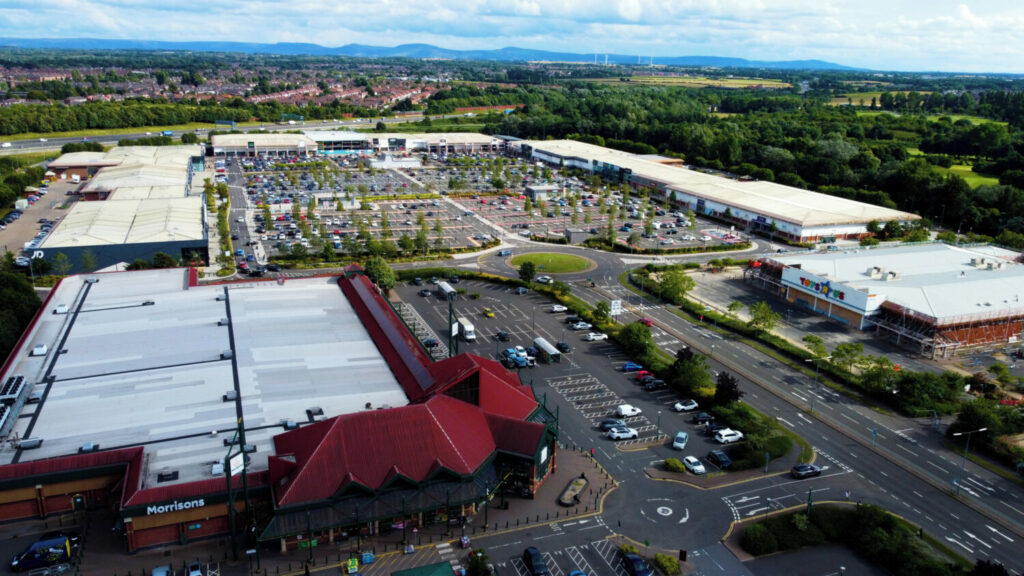
As the retail landscape has evolved over the past few years, retail parks have become an increasingly attractive investment, or as British Land boss Simon Carter previously put it: “the winning retail format”.
But what drives their success? For Grace Waterworth, asset manager at British Land, retail parks offer customers and businesses the three ‘A’s – affordability, adaptability, and accessibility.
Waterworth is part of the team behind Teesside Park in Stockton-on-Tees, an asset which she says is a “prime example” of offering these three ‘A’s:
“The format is incredibly attractive to retailers due to lower occupational cost ratios than high streets or shopping centres, driven by lower rents, rates and service charges and strong store turnover”, she says.
Once a traditional, ‘boxy’ retail park, Teesside Park in the Tees Valley – of which British Land owns around 585,000 sq ft – is the primary retail destination for the surrounding catchment, which includes the towns of Darlington, Hartlepool, Redcar, and Middlesbrough.
Accessibility to these surrounding areas has played a key role in the scheme’s success, says Waterworth:
“At Teesside Park there is excellent access from the A66 and A19 directly into a large, free car park. This makes Teesside Park ideal not only for shopping, but for click-and-collect, returning goods to store and increasingly shipping from store”, she says, adding that the asset has also been able to benefit from the flexibility of the retail park format:
“They are essentially a steel box, which we are able to carve up, amalgamate and extend to suit individual requirements.”
This has enabled Teesside Park to bring in attractive occupiers traditionally associated with high street retail and create a unique offer at Teesside Park. British Land have added a 10,000 sq ft extension to an existing unit to create a space for Primark, facilitated an upsize of Sports Direct on the park, and split a unit to accommodate both Wagamama and Lush in recent times. This versatile use of space has allowed the asset to boast a tenant mix closer to those seen in town centres rather than in traditional out-of-town destinations.
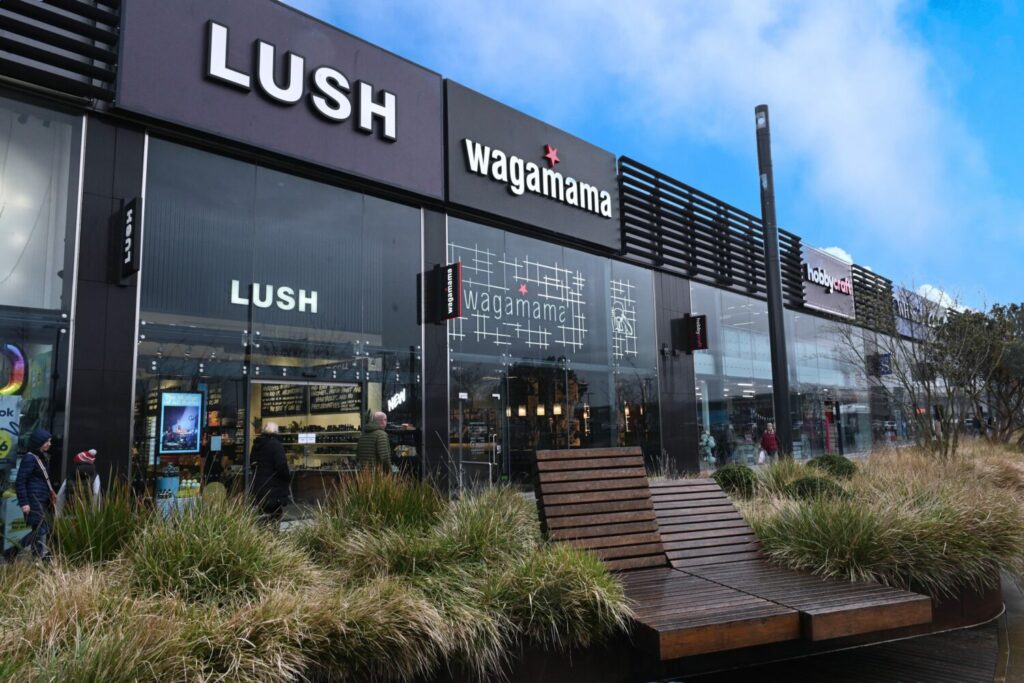
New arrivals at Teesside Park Lush, Wagamama (above) and Nike (below)
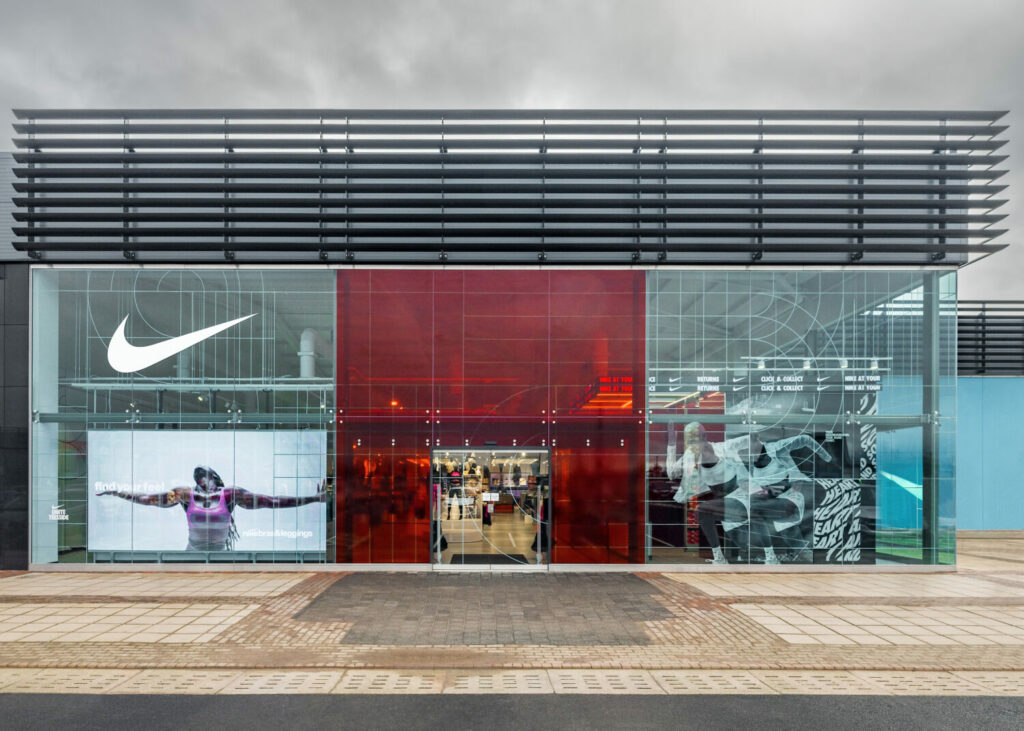
British Land also owns just over 100,000 sq ft of the adjacent Teesside Leisure Park, which is home to the likes of Hollywood Bowl, Burger King, and Pizza Hut.
This leisure offer is set to expand in 2024, with Hollywood Bowl extending to open a 12-hole mini golf course and additional bowling lanes, whilst British Land has agreed an offer with Ninja Warrior with the remaining space under offer from a gym operator.
“This expanded offer will further strengthen Teesside Park as a key leisure destination for the Tees Valley, providing a fantastic variety of activities and day out”, says Waterworth.
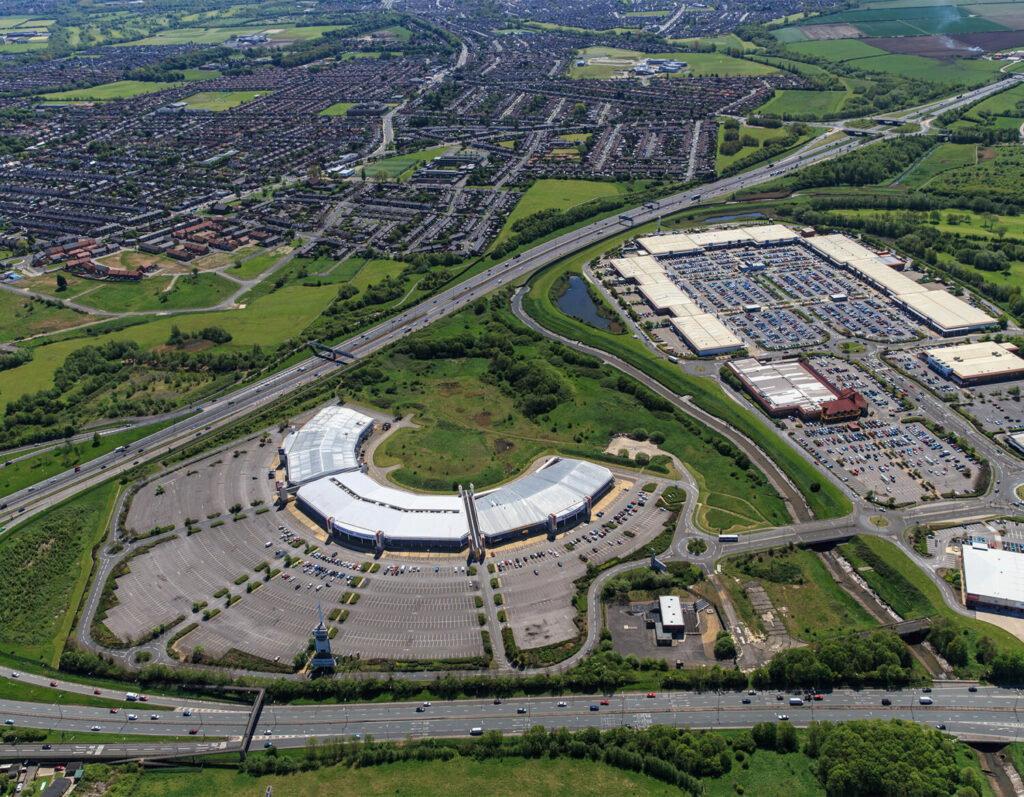
Teesside Leisure Park
As well as bringing new and unique tenants to Teesside, British Land has also pushed for better services for local residents as a means to increase footfall.
Catherine Furlong, centre director at Teesside Park, says that the Tees Valley is one of many areas in the north which have suffered a long-term lack of investment in public transport infrastructure:
“Teesside Park has never benefited from good transport links to the rest of the Tees Valley and has been a ‘drive to destination.’ The Tees Valley has lower levels of car ownership compared to the rest of the UK, so this has meant that many people living in the area have become socially excluded from using Teesside Park, for employment, enjoyment, or both”, she says.
However, in November last year three new bus routes started running to Teesside Park following successful lobbying from British Land. Furlong says that the positive effects of these changes are already being seen, with the new bus services bringing in approximately 3,000 additional visitors every week, from groups such as the elderly, students, and low income families without access to a car.
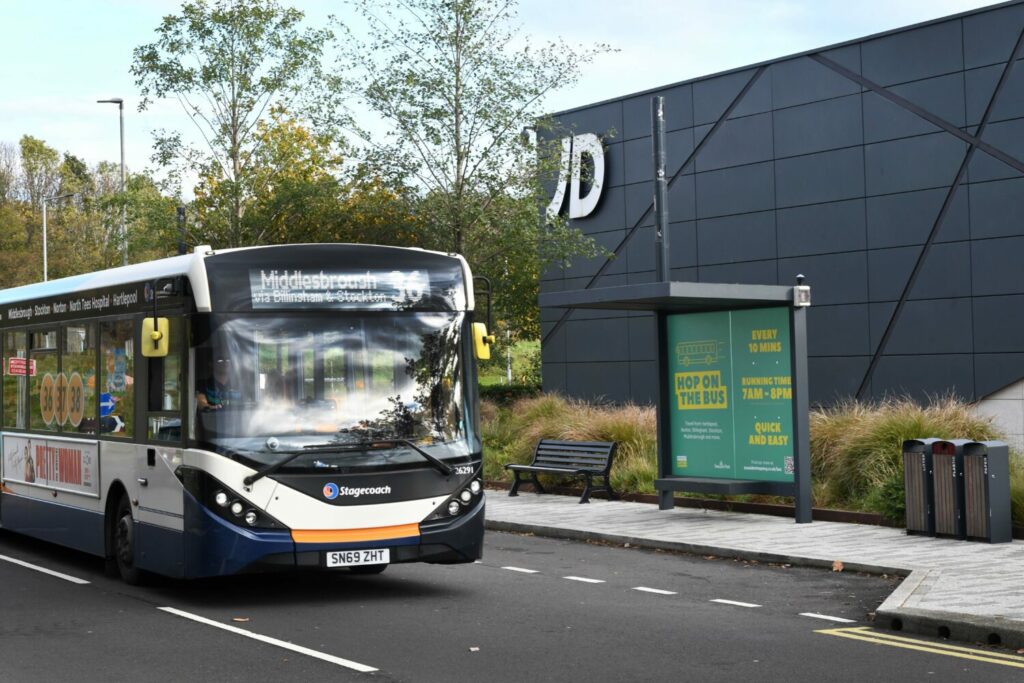
One of the new bus services at Teesside Park
“Better transport to the park has improved the lives of so many people”, says Furlong, “for example, opening up employment opportunities for young people and giving freedom for the elderly to go shopping. People who have previously been isolated are now able to get out and meet others, students can enjoy a shopping or leisure trip, families on low incomes who do not have access to a car can now get to Teesside Park.”
The Tees Valley Combined Authority is also set to invest into more local transport projects, having been granted just over £900m from the cancelled HS2 project.
Grace Waterworth says the combination of new retailer openings and improved public transport has strengthened Teesside Park as the “key retail and leisure destination in the Tees Valley”, with many new retailers exceeding their sales and expectations and existing retailers receiving the benefits of increased footfall. She adds that sales at the scheme have increased by over 9% in the past 12 months.
The results at Teesside Park are an example of British Land’s three ‘A’s in action. The asset’s affordability, adaptability, and accessibility, combined with changes to the tenant mix and local transport links, make it a clear example of why British Land sees its retail parks as the “winning” format.
It doesn’t stop there however, with more investment expected at Teesside Park in the near future:
“Teesside Park has undergone significant change over the last couple of years and we aim to continue building on our retail and leisure offer to meet our customer needs and improve their shopping experience”, says Waterworth, “we look forward to announcing the opening of more exciting brands in the near future.”